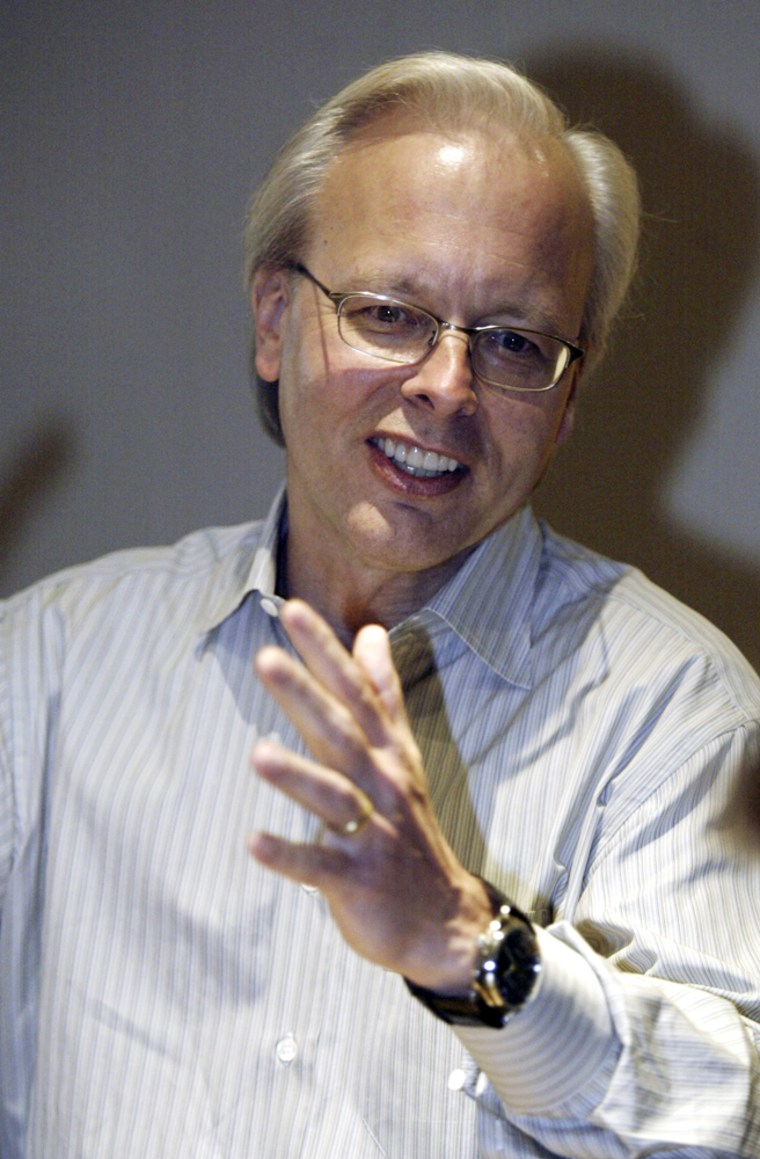Bill Gates’ decision to give up day-to-day duties at Microsoft Corp. puts more pressure on Steve Ballmer, Ray Ozzie and other top executives to figure out the company’s place in an industry increasingly focused on Internet-based services championed by Google Inc. and others.
A large chunk of that responsibility is likely to fall to Ozzie, who is well-known in the technology industry but does not have anything close to the pop celebrity status of Gates, Microsoft’s co-founder and chairman.
Gates said Thursday he plans to step back from handling daily responsibilities by July 2008, although he will remain chairman. As part of the changeover, he immediately named Ozzie to take his place as chief software architect, the top technical job at the world’s largest software company.
Ballmer, Microsoft’s chief executive, will continue to run the company. Craig Mundie, another chief technical officer, will oversee Microsoft’s strategy and research.
The changing of the guard comes as more companies, including Google and Yahoo Inc., are offering software over the Internet for everything from checking e-mail to collaborating on business proposals. The shift poses a big threat to Microsoft, which makes most of its billions by selling software that runs directly on desktop computers, not a server located somewhere on the Internet.
“Microsoft’s biggest nightmare is people living in the browser,” said Joe Wilcox, an analyst with Jupiter Research.
Ozzie, an industry luminary who joined Microsoft in 2005 as a chief technical officer, had already been spearheading the Redmond company’s efforts to offer more online software and services, which Gates has made clear is a top priority.
In an interview Friday, Ozzie said his experience developing Web-based services for his startup Groove Networks Inc. got him excited about the potential for pushing such a change in strategy at Microsoft.
“I’m taking this role at a time when we should take a shift as a company to services, to embrace services,” he said. “That’s good, that’s a very positive thing.”
Microsoft recently launched a system for selling online advertising, to try to compete with Google’s juggernaut. And it has been revamping Web-based consumer offerings, such as e-mail, instant messaging and search, under its new Windows Live brand name.
Microsoft also is facing pressure from companies such as Salesforce.com Inc., who offer the type of Web-based business software that could eventually threaten Microsoft’s lucrative business software, including its Office suite.
Google also has begun offering word processing and other business software over the Internet. In response, Microsoft is testing Web-based business offerings, dubbed Office Live.
But analysts say because the Windows Live and Office Live efforts are still in the early stages, it’s too soon to say how well Microsoft is doing against its more established competitors.
“The way that they’ve done it, I think, are steps in the right direction, but there’s not enough publicly available information about what Live is to really assess that yet,” Gartner analyst David Smith said.
It also may be too soon to assess whether Ozzie is the right person to lead such a monumental change at Microsoft. Analysts credit him with being a visionary responsible for creating Lotus Notes, early technology for sharing documents and e-mail, and Groove Networks, for online business collaboration. And they say it speaks volumes that he has Gates’ trust.
But Ozzie has a considerably lower profile than Gates, and Smith thinks one key to garnering the type of respect Gates enjoys will be to make himself more well-known.
“People need to understand who he is and what he stands for,” Smith said.
Smith said Ozzie also has limited experience working in a large company, which could pose problems as he tries to guide thousands of employees on technical issues. The fact that he has been personally selected by Gates will likely help him earn respect among his colleagues, although Smith notes that outsiders have traditionally had trouble succeeding in leadership roles at Microsoft.
Rick Belluzzo, Microsoft’s president and chief operating officer for a short stint ending in the spring of 2002, is among those who didn’t last long.
Ozzie acknowledged Friday that he has had to get used to the meetings and mass of e-mails that come with working at the world’s largest software company. But he noted he has had some experience at a large company because of a stint at IBM Corp. And he said his work at smaller companies would help him work on things like customer satisfaction.
“There are opportunities for good aspects of change,” he said.
Although he isn’t as well-known as Gates, Ozzie said he thinks Gates’ backing over many years has helped him gain respect at the company.
“I haven’t had to prove my credibility,” he said.
Wilcox said he thinks Microsoft needs fresh blood if it wants to truly shake things up and move the company significantly beyond its traditional mode of selling desktop software.
Microsoft needs an outsider who can “not just change its direction but change how it thinks and even change, to some degree, the corporate culture,” Wilcox said.
On Friday, Wall Street largely shrugged off news of the transition. Microsoft shares rose 3 cents to close at $22.10.
